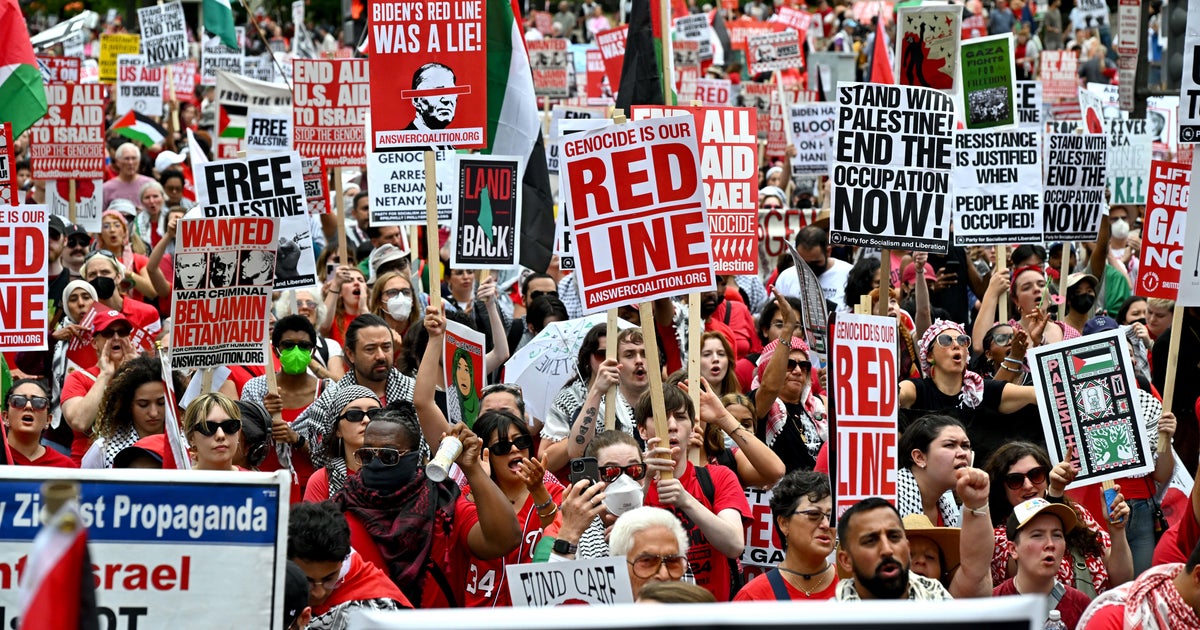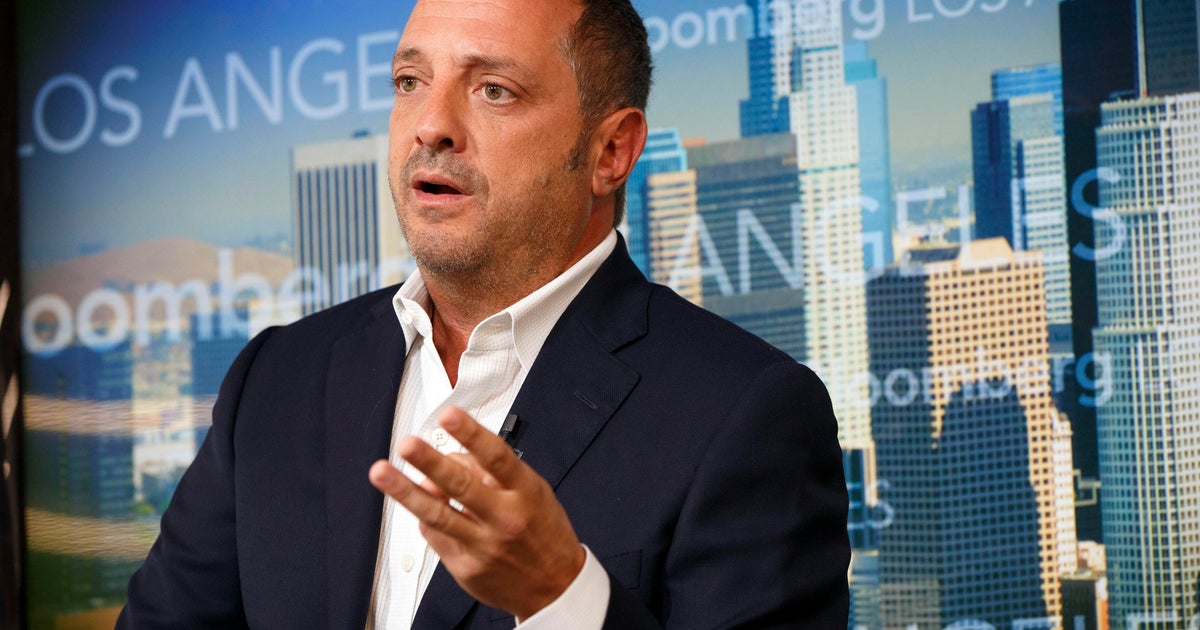Louisiana postpones primary due to coronavirus
Louisiana is postponing its scheduled April 4 primary due to the coronavirus pandemic with Governor John Bel Edwards signing a proclamation on Friday to move the election to June 20. President Trump on Friday declared a national emergency because of the pandemic.
At a press conference Friday morning, Louisiana Secretary of State Kyle Ardoin said a state code about emergencies during elections allowed the primary to be postponed.
"Today I have certified that a state of emergency exists and requested that the governor issue an executive order postponing the elections this spring. While hurricanes, floods and tornadoes are at the forefront of all Louisianans minds, the threat we face from the COVID-19 virus is an unprecedented threat and unlike any we have faced," Ardoin said.
In response, the Democratic National Committee says the change could result in Louisiana losing at least half of its delegates, due to a potential violation of their timing rule that all states hold contests by June 9.
"We will continue to work with every state party as they adjust their delegate selection plans around coronavirus. Any violation of our rules could result in a penalty that would include a state losing at least half of its delegates. This change will be reviewed by the Rules and Bylaws Committee," a DNC spokesperson told CBS News.
Senator Karen Carter, the Louisiana Democratic Party chair, said they are "hopeful" the DNC will work with them to revise the delegate selection plan.
"We want to ensure every Louisianian has the chance to make their voice heard in this election. Louisiana Democrats are committed to preserving the health of our neighbors while ensuring the voices of hundreds of thousands of Louisianians are heard," she said.
Ardoin has also requested the general elections for municipal general elections be postponed from May 9 to July 25. The office has previously moved election dates in 2005 after Hurricane Katrina and in 2008 after Hurricane Rita. State law states that a governor may take an executive order to suspend or move elections, only after a recommendation from the Secretary of State. Currently, the state has at least 30 positive cases of coronavirus.
Other states that have elections on April 4 are Alaska and Hawaii. Georgia is scheduled to hold its primary on March 24. Wyoming was scheduled to have their caucus on April 4, but state Democratic Party Chair Joe M Barbuto announced the in-person portion of the caucus has been suspended and that voters are encouraged to vote by mail.
"Our priority is ensuring that people are healthy and safe. Holding public events right now would put that in jeopardy, so this is the responsible course of action," Barbuto said in a statement.
The four states involved in next Tuesday's primaries have been signaling all week how they would approach coronavirus. Secretaries of State from Arizona, Florida, Illinois and Ohio issued a statement on Friday that their elections will go as planned on Tuesday, March 17.
"Unlike concerts, sporting events or other mass gatherings where large groups of people travel long distances to congregate in a confined space for an extended period of time, polling locations see people from a nearby community coming into and out of the building for a short duration," the statement said. "We are confident that voters in our states can safely and securely cast their ballots in this election, and that otherwise healthy poll workers can and should carry out their patriotic duties on Tuesday."
"There is no legal authority for canceling an election, our governor made a disaster declaration this week but even that does not give him the authority to postpone an election or move an election day, that's set in statute," said Illinois Secretary of State spokesperson Matt Dietrich in an interview with CBS News.
All four states have been pushing their vote-by-mail or early vote options, something they usually frame as a way of convenience to avoid long lines. Joe Biden's campaign also encouraged early voting in a statement on Friday.
"If voters are members of an at-risk population, exhibiting symptoms, or have been exposed to a diagnosed case of COVID-19, we encourage them to explore absentee ballots and vote by mail options," he said.
Arizona has been promoting its curbside voting option, as well as making sure polling sites receive a full cleaning and disinfecting, especially in the 20 voting sites statewide that are in facilities frequented by seniors. In-person early voting here goes until Friday, March 13, while all mail ballots must be received by county officials by 7 p.m. on March 17.
"We also want to remind voters to make a plan for participating in this election," Arizona Secretary of State Kate Hobbs said. "Today is the last day we recommend people mail back their early ballots, and there are still several other early voting options available for those who want to avoid potential crowds on Election Day." In-person early voting is available in Arizona until Friday, March 13.
In Florida, vote-by-mail ballots have to be received by no later than 7 p.m. on Election Day. The state also offers early voting in 67 counties until Saturday, March 14, though officials note some counties may opt to add in more early-voting days. More than 204,000 Democrats have voted early so far.
"We are working with county supervisors of elections around the clock to guarantee that those votes count and that we ensure fair and accurate elections," said Florida Secretary of State Laurel Lee.
Ohio and Illinois have both been relocating vulnerable polling places, particularly those located at senior living facilities. The new Ohio locations include churches, school gyms and public buildings. The state also said there will be bipartisan teams of county board of elections officials to help seniors at these facilities vote without leaving the facility.
Ohio Secretary of State Frank LaRose said in a press conference Tuesday that they've already seen more people take advantage of the early vote or vote-by-mail options than they saw in 2016. In-person early voting ends at 2 p.m. on Monday, March 16.
In Illinois, the deadline to be sent a vote-by-mail ballot was Thursday afternoon. Dietrich said while the idea to extend this deadline was floated Wednesday, the state needed to be able to allow enough time for mail ballots to be returned.
"If they move the deadline to tomorrow, even on a Friday, it is doubtful that everybody would receive their ballots in time and essentially you'd have people who'd lose their right to vote because they're waiting at home for their ballot to arrive and it never comes," he said. Dietrich said that the state has already seen 12,000 more mail-in ballots returned than in 2016. Some 240,000 were sent out, and 65,000 have already come back this year. Illinois has also seen 272,000 early votes cast so far, more than the 246,000 they saw in 2016.
"Our message basically is to voters, if you're going to go out and early vote, if you're going to vote on Election Day, use the same kinds of precautions that these health agencies are telling you to use. You know, frequent hand washing, don't touch your face," he said. "Message to voters, if you want to bring your own pen, feel free to do so."
Eleanor Watson contributed to this article.




